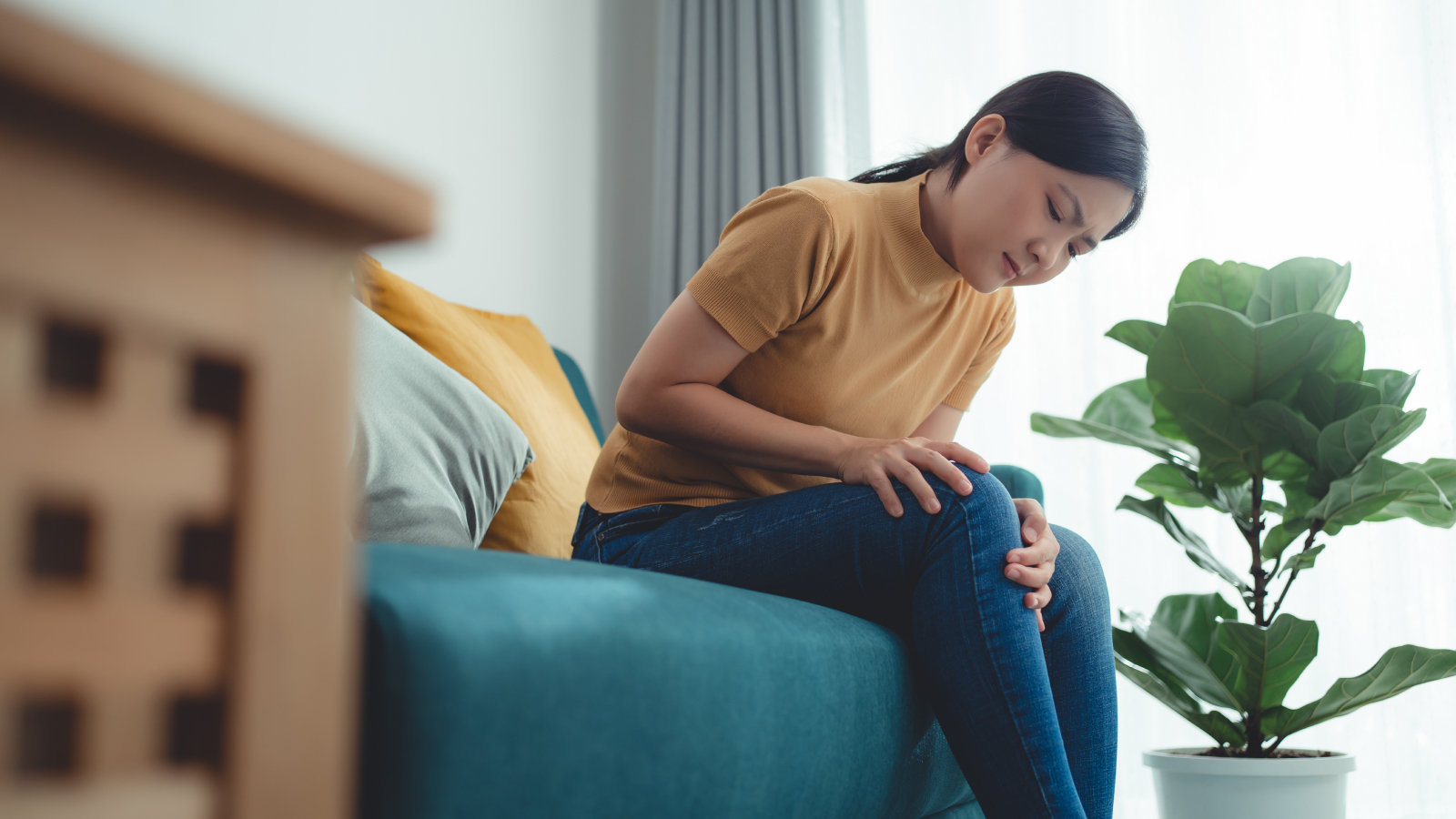
Why do we go 'weak in the knees'?
The saying "weak in the knees" may be figurative for many, but can it really happen to people?

Going "weak in the knees" — it's an expression used to describe the experience of overwhelming emotions: fear when you stand too close to a cliff's edge, grief when you hear devastating news, or attraction when you see someone you love.
The saying has origins in translations of the Bible, "where the knees of people lacking spiritual stamina were first described as 'trembling' and 'feeble' (1300s) and later as 'weak' (1500s)," according to Grammarphobia, a blog on grammar, etymology and word usage.
But can extreme feelings really make your legs go wobbly? Experts say people could experience "weak knees" in certain situations. For instance, big emotions — especially stress — can cause physiological changes in the body that might lead to knee weakness. But knee weakness isn't all feelings — it can also be the sign of a medical problem.
Feeling in your knees
Going "weak in the knees" is more colloquial than clinical, according to Martin Antony, an anxiety expert and chair of the psychology department at Toronto Metropolitan University. While we might be familiar with the idea of someone falling to the ground when receiving bad news, Antony said there's not a strong connection between knee weakness and big emotions in the scientific literature.
"I've not seen a study on knee weakness and anxiety," Antony said. And it's not an established symptom of anxiety or panic. However, several panic attack symptoms, like shakiness and cold flushes, are associated with unsteadiness, Antony said. So, while weak knees are largely just an expression, the saying may describe the overall unsteadiness people feel when they're anxious or emotional, he said.
Related: What are the most common ways people get injured?
Bethany Teachman, a professor of psychology who specializes in anxiety at the University of Virginia, said that in some scenarios, a weak feeling in the knees is likely linked to the body's fight-or-flight stress response. Fight or flight is a series of changes that happen in the body when stress hormones are secreted. These changes — like increased blood sugar, change in blood pressure, perspiration and tightening muscles — prepare the body to flee from danger or take on a threat. But they may also contribute to the sensation of unsteadiness, Teachman said.
Sign up for the Live Science daily newsletter now
Get the world’s most fascinating discoveries delivered straight to your inbox.
For example, in fight or flight, the body redirects blood supply to the brain and major muscle groups, like the arms and legs, in case you need to run away or fight back. This adaptation is extremely valuable if you need to run from a threat, Teachman said. But it can also cause lightheadedness or dizziness, which might contribute to that unsteady sensation. Tightened muscles may also lead to feelings of instability, she said.
Panic attacks can also cause dissociative symptoms that make a person feel outside their own body, Teachman noted. This factor may also be at play when people feel weak in the knees.
Weak knees may be a medical issue
Knee weakness is not just emotional. As the largest joints in the body, knee weakness can also be a sign of an underlying medical issue, like osteoarthritis, quadricep weakness and overuse.
If your knee weakness or unsteadiness happens only during a panic attack or moments of big emotion, it's fairly safe to say the symptoms are rooted in anxiety, Teachman said.
However, if the weakness or unsteadiness is prolonged — lasting well beyond the episode of emotions or panic — it could be a sign that medical attention is needed, Antony said.

Donavyn Coffey is a Kentucky-based health and environment journalist reporting on healthcare, food systems and anything you can CRISPR. Her work has appeared in Scientific American, Wired UK, Popular Science and Youth Today, among others. Donavyn was a Fulbright Fellow to Denmark where she studied molecular nutrition and food policy. She holds a bachelor's degree in biotechnology from the University of Kentucky and master's degrees in food technology from Aarhus University and journalism from New York University.










